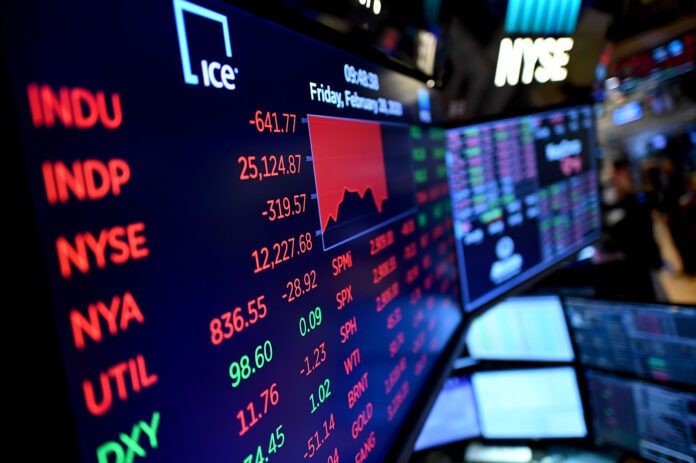
According to Investopedia, the S&P 500 declined 38.5% in 2008 with a historic sell-off that left the whole world in shock. 8.8 million jobs lost and 8 million home foreclosures meant that the economy was in serious trouble.
Losses were in trillions and in 2009, unemployment stood at 10%, meaning that 1 in every 10 Americans was out of a job. Volatility is a part of market behavior, where traders experience emotions from despair to euphoria.
High-frequency bots and algorithmic trading lead to fast-paced market movement allowing for efficient entries and exits that remain outside the realm of human ability.
It’s important to learn from the events that transpired to make sure that we aren’t caught off guard the next time we experience extreme market volatility.
“The markets take the stairs up and the elevator down.”
-Tim Egart
While markets do go through cycles of ‘booms’ and ‘busts’, it’s important to trade acknowledging the risks involved with trying to go up against the likes of institutions, High-Frequency Trading (HFT) bots, and algorithms.
Using an algo trading API is the best way to connect algorithmic trading with a stockbroker. It can extremely beneficial for effectively automating your trades in the stock market.
Losses are A Part of Trading
When dealing with the stock market, it’s important to understand that risk and losses are an innate part of investing and trading.
Money is risked on the market in the hope of a better return, but it’s important to prepare for losses as well in case the market volatility does not move as expected.

That isn’t to say that we become jaded about investing and trading, but rather that it’s necessary to understand the risks involved and stick to a game plan.
These are 5 lessons that we have learned in the stock market crash of 2008 that have left us wiser and more risk-averse.
The Importance of Hedging & Risk Management
Hedging is the technique of holding assets that traders use to offset losses by taking the other side of a position in a similar asset.
Traders hedge their high-risk bets with lower risk ones.
At times, traders may hedge their positions with another position in a completely different asset class. It’s not uncommon for traders to hedge against the stock market with Gold or Oil.
Hedging is a great way to either reduce losses or limit a loss to a set amount beforehand. During the stock market crash of 2008, too many traders were caught off guard with no risk management strategy. Do you know about Hang Seng index live?
When the market is euphoric, it may seem that the price will never decline. However, hedging is a great risk management strategy to make sure that losses can be managed and reduced.
Diversify Your Holdings
If it’s one lesson we’ve learned from the great financial crisis of 2008, it’s the importance of a risk management strategy like diversification spoken about by Warren Buffett.
Having all of one’s eggs in one basket can be fatal. You definitely don’t want to be caught out when a bank collapses or a stock tumbles.
It’s well known that gold and other precious metals like silver and platinum are good hedges against stocks. Panic and fear are strong emotions that can elicit immediate reactions.
Many would argue that fear is a stronger felt emotion than greed. There’s a reason that a stoplight is red, and not green. Many fast-food companies use the color red to incite a feeling of hunger. Apart from this, if you want to know about store supply wholesale, you can find it on Google.
The intense market sell-off caused mass panic resulting in traders selling their stock for rock-bottom prices. It was a cascading effect caused by widespread FUD (Fear, Uncertainty, Doubt) in the air causing a lack of market confidence.
No Company Is “Too Big To Fail”
It’s concerning at times when we hear stock recommendations from overzealous traders. “There’s no way it’s going down” is a red flag of complacency and potentially irrational bullish bias.
According to Investopedia, on September 15th, 2008, Lehman Brothers filed for bankruptcy with $619 billion in debt and $639 billion in assets.
This sent shockwaves into the world of finance because the bank was considered by many as a safe bet that carried minimal risk. It taught investors and traders a valuable lesson, and that is, no bank, organization, firm or company is too big to fail.
Complacency and market bias is the cause of a large chunk of losses in the stock market.
It’s important to consider the risks involved in investing in the markets and understand that one must only invest an amount that they can part with.
Invest Only What You Can Afford to Lose
The clearest message that the stock market crash of 2008 sent was that many traders were overleveraged and overexposed.
When investing in the stock market, it’s important to do so with extra funds that are not already set aside for living expenses like rent, utilities, or emergencies.
It is never a good practice to go into debt to invest in the stock market or trade on leverage. If you’re looking to invest in the stock market, make sure that it’s an amount that you’re ready to lose.
”Only when the tide comes in will you see who was swimming naked.”
– Warren Buffett
Trading accounts are not emergency funds, as they can easily be wiped out in the case of a Black Swan event like the stock market crash of 2008.
There Is Huge Profit to Be Made Shorting The Market
Expert traders can play both sides of the market successfully with consistency! The stock market crash proved extremely profitable to traders shorting the market on leverage or selling put options when the market was clearly overvalued.
Some would even argue that taking a bearish position during a falling market is more efficient than buying for the long haul, due to the price’s tendency to dip quite drastically (known as the “falling knife”).
Conclusion
If it’s anything that the stock market crash has taught us, it’s that the market can be profitable both ways – and learning to trade it to the downside can have plenty of rewards.
It’s important to note that market shorting can be prohibited or restricted depending on where you live, so be sure to check with the laws that apply to you.


















![10 Countries With the Best Healthcare in the World [Statistical Analysis] Countries With the Best Healthcare in the World](https://articleify.com/wp-content/uploads/2025/07/Countries-With-the-Best-Healthcare-in-the-World-1-150x150.jpg)









